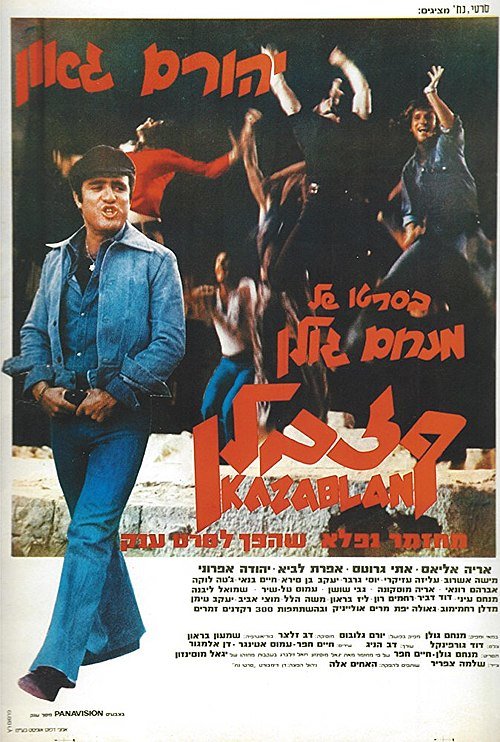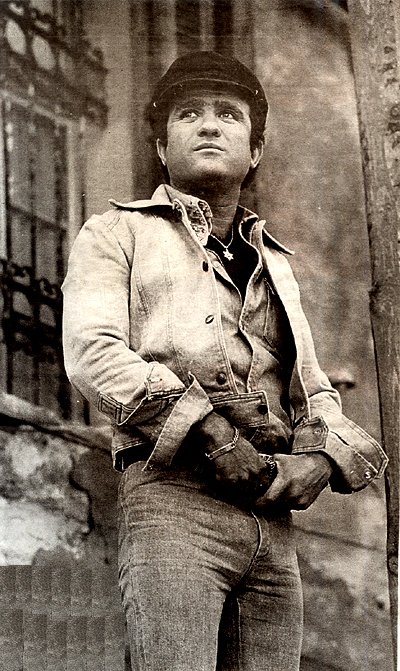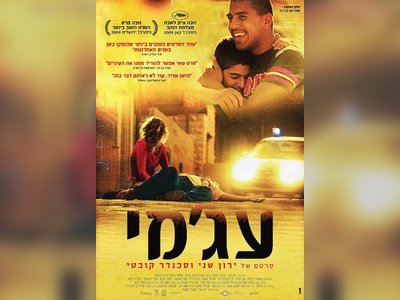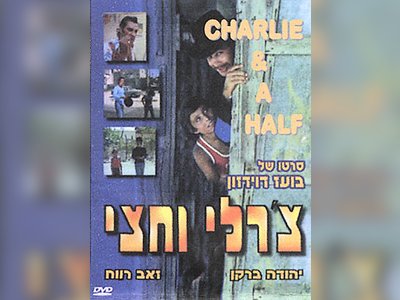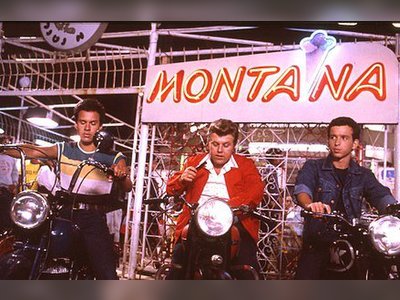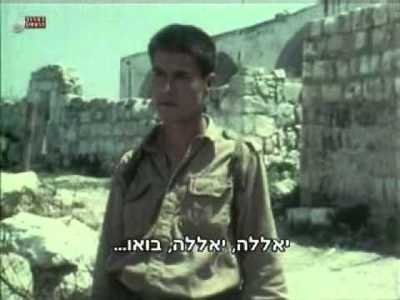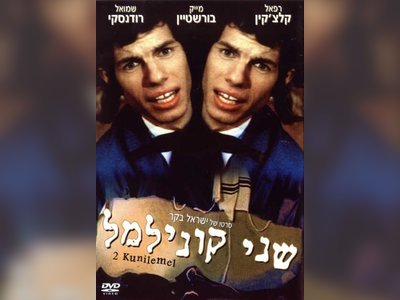מורשת גדולי האומה
בזכותם קיים
beta
"Kazablan" - A Cinematic Journey Through Israeli Culture
Kazablan is an Israeli film of the Burlesque genre, directed by Menahem Golan and starring Yehoram Gaon. The screenplay was written by Menahem Golan and Haim Hefer, based on the musical of the same name from 1966. The film premiered in Israel on July 7, 1973, and remains the second most-watched film in Israeli cinema history, with 1,222,500 tickets sold (at a time when the country's population was around 2.8 million). It was also released in the United States on May 8, 1974.
Plot
The story unfolds in a turbulent neighborhood in Jaffa, where both new and veteran immigrants reside, hailing from Europe and the Middle East. Among the residents is an elderly fisherman named Mosheku Bu'uff (played by Arie Elias), who narrates the film's events.
Joseph Siman-Tov (Yehoram Gaon), known to all as "Kazablan" or simply "Kaza," is a Moroccan immigrant who grew up in Israel. He has a gang of friends, causing trouble for the local Jaffa residents. Kazablan, in particular, feels alienated as his former comrades, with whom he fought shoulder to shoulder in the war, have forgotten his heroism during a crucial battle. One of the incidents illustrating this is when one of his friends gets married, but doesn't invite him because he doesn't know his address.
Kazablan falls in love with Rachel (Efrat Lavie), the daughter of Mr. Feldman, a prominent figure in the Jaffa community. However, Feldman disapproves of Kazablan's behavior and forbids his daughter from seeing him. Another man who is in love with Rachel is Yanush (Yossi Graber), an immigrant from Hungary and a shoemaker in the neighborhood, whom Kazablan and his gang humorously call "Goulash."
One night, as Rachel walks home from school, Yanush waits for her and forcefully tries to win her over. Kazablan, who happens to be passing by, intervenes and escorts Rachel safely home. Grateful for his help, Rachel invites Kazablan to a Shabbat dinner at her home. Her father, Feldman, despite initial objections, allows him to attend.
During the dinner, while Feldman is not looking, Kazablan notices a box containing money collected by the neighborhood residents to strengthen their community, hidden in a corner. He decides to take the money to safeguard it better. The dinner goes well, and Rachel's parents start to warm up to Kazablan.
The next day, Yanush visits Feldman's house to convince him to let Rachel marry him. Feldman refuses, and Yanush, seeing the box of money, seizes the opportunity to steal it. The neighborhood residents suspect Kazablan of the theft and, upon his return from Jerusalem with Rachel, he is arrested by the police. After a tense encounter with his former army commander, who saved his life in battle but has since forgotten him, Kazablan is released from prison.
Back in Jaffa, Kazablan exposes Yanush as the real thief, seeking revenge on Yanush's accomplices who had attacked him earlier. This act of bravery earns him the respect and blessing of Rachel's parents, and Kazablan, once an outcast, becomes the neighborhood hero. The film concludes with the brit milah (circumcision ceremony) of a young couple's son, named after Kazablan, solidifying his newfound status as a neighborhood legend.
Background
The play "Kazablan" was originally written by Yigal Mossinzon at the request of the Teatron LeMa'abarot organization (The Transit Camp Theater). In September 1954, it was staged at the Cameri Theater, directed by Shmuel Bunim, with Yosef Yadin and Chaya Harari in the lead roles. In 1966, the play was adapted into a musical by Mosinzon and Yoel Silberg, featuring additional songs written by Amos Ettinger, Dan Almagor, and Haim Hefer, with music by Dubi Zeltzer.
The film's budget was 2.8 million Israeli pounds, making it the most expensive Israeli production of its time. The film was shot with a Panavision camera rented from England, on 70mm film, and the music was recorded in stereo. Yehoram Gaon, Eti Groutz, and Arie Elias, who played the main characters in the original musical, reprised their roles in the film. Despite the original story being set in the "Big Area" (today, Givat HaPisga Park), which had mostly vanished by the 1970s, the film was shot in the nearby Manshiya neighborhood due to its similar atmosphere.
In parallel with the Hebrew version, an English-language version was filmed, featuring the original actors. Translators from the United States and England assisted with script and song translations, as well as dialect coaching.
Film Songs
The songs for the film were written by Dan Almagor and Amos Ettinger, with music composed by Dubi Zeltzer.
- קזבלן (סרט)he.wikipedia.org
